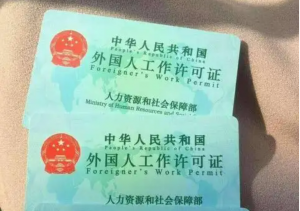3 Things CN Company Must Confirm Before Hiring Foreign Employees

1 Ensuring Qualification for Hiring Foreign Employees
The first step is registering an account on the Foreigners Working in China Management Service System, a prerequisite for gaining the qualification to hire foreign workers. This registration process involves filling in company details and uploading required legal documents, such as business licenses and the legal representative’s identification.

However, not every company automatically qualifies. In some cities, there are specific requirements regarding the company’s operational status, duration of establishment, and the number of Chinese employees.
2 Necessary Documents for Foreign Employees to Legally Work in China
The Chinese company must submit the relevant application materials, including the applicant’s passport information page, personal details, and other supporting documents, to the State Administration of Foreign Experts Affairs. Once the application for the work permit notification is approved, the foreign national must take this notice along with other personal documents to the Chinese embassy or consulate to apply for a Z visa to enter China.
After entering China, the foreign worker must apply for a work permit issued by the Foreign Experts Bureau in the city where they will be employed, ensuring their legal right to work. This application requires the work permit notification, a medical examination report, and an employment contract, among other documents. Once the work permit is obtained, the employee must then apply for a residence permit from the local exit and entry department to ensure their legal stay in the country. Only after obtaining both of these permits can a foreign employee legally work in China.

3 Are Chinese Companies Required to Pay Social Insurance for Foreign Employees?
If the foreign employee’s home country has signed a bilateral or multilateral social insurance exemption agreement with China, they may be exempt from paying certain insurance contributions according to the terms of the agreement. To date, China has signed such agreements with Germany, South Korea, Denmark, Canada, Finland, Switzerland, the Netherlands, Spain, Luxembourg, Japan, and Serbia.

It’s also essential to note that labor contracts play a critical role for both Chinese companies and foreign employees, especially when submitting various documents during the application process.


